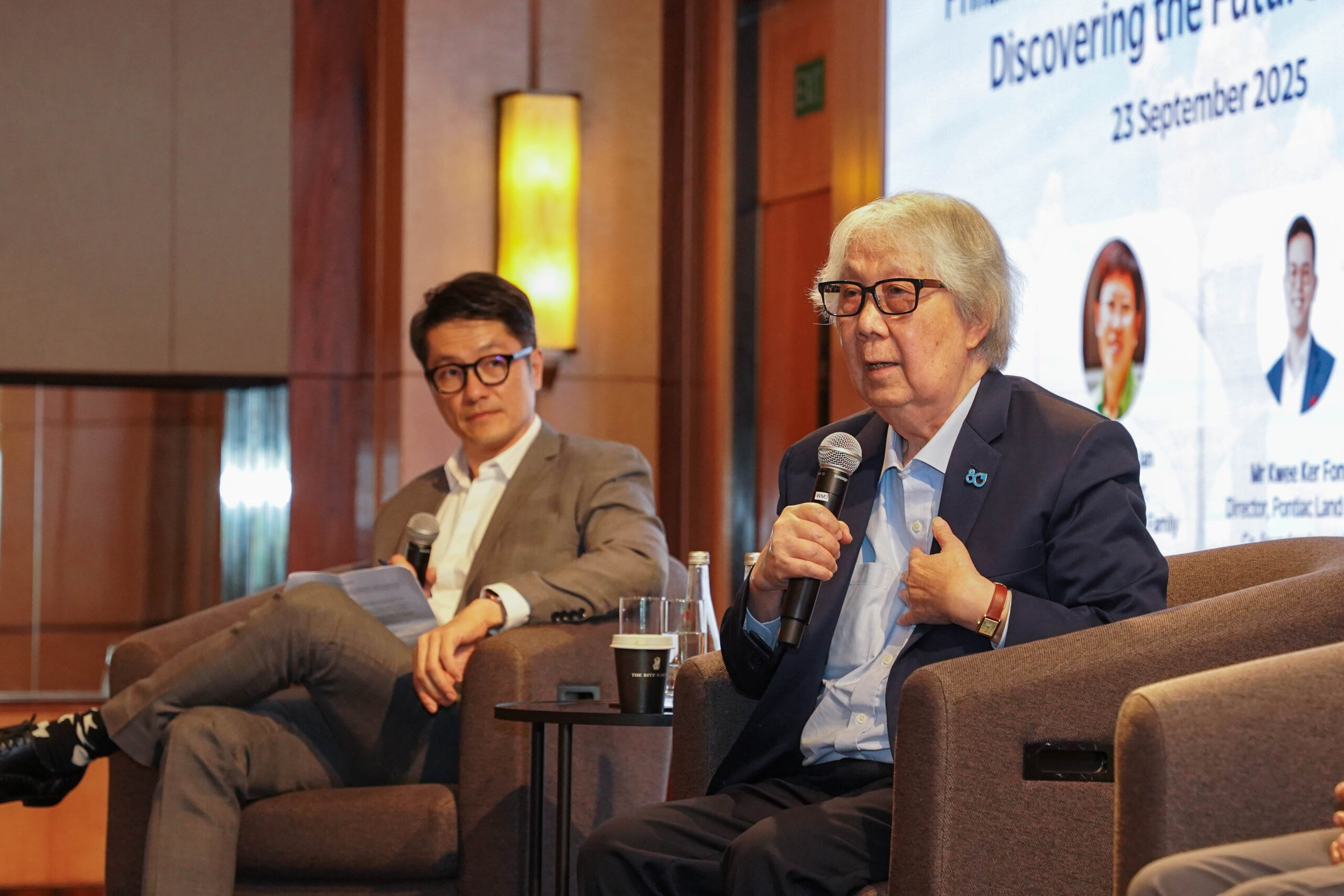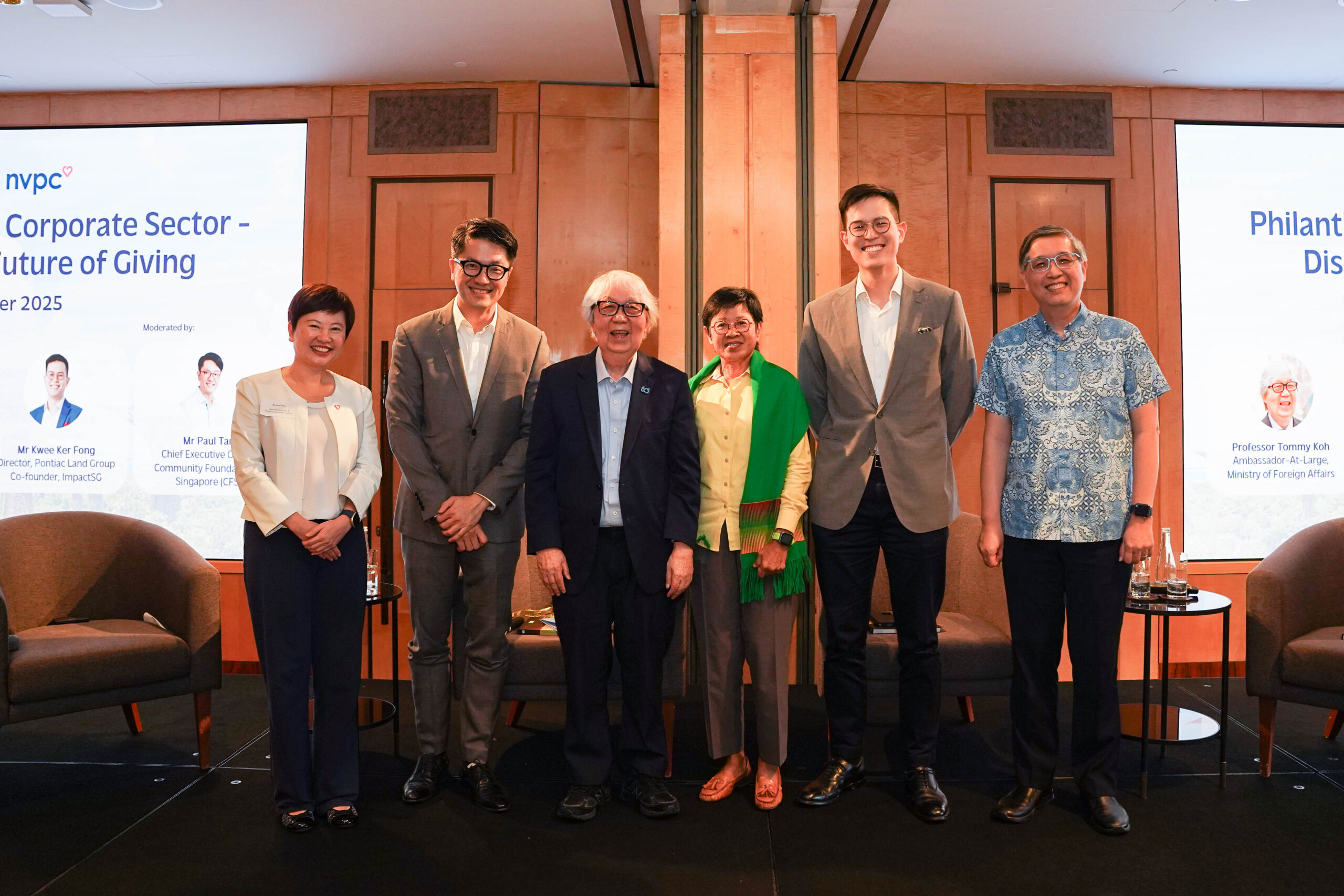Impact lives through savvy giving


Make savvy giving a legacy in your life: that was the clarion call to around 100 donors, charities and partners at the Community Foundation of Singapore’s (CFS) Lunar New Year lunch held in February.
“Being savvy in giving is about going beyond the usual traditions of supporting general fundraising campaigns, to deliberately taking charge of generosity,” shared Christine Ong, Chairman of CFS in her opening speech, “It’s about planning and thinking deeply about how to create a powerful effective result, to improve things and impact lives.”
Signaling a new phase for CFS in her first year as Chairman, Christine outlined CFS’s ambition to nurture “a nation of savvy givers” to create a more caring Singapore.
“The signature of a savvy giver or philanthropist, is to be bold and informed, curious and committed, and enthusiastic about putting into practice their beliefs and hopes for a better world,” she explained.
To this end, Christine highlighted that CFS would work on championing new giving by reaching out to donors and making giving easy and meaningful. Moving forward, CFS would also continue to drive collaboration for change, provide professional learning opportunities to the local sector and develop CFS’s organisational culture and capacity.
The lunch also saw the announcement by CFS for a new nationwide Legacy Giving Initiative – an ambitious project to help donors making savvy giving a legacy in their lives.
CFS wants to make legacy gifts a social norm in Singapore, and for donors to consider giving at every stage of their life journey.
The three-year initiative will be launched in the latter half of 2020. It aims to reach out to three audiences: donors, professional advisors and charities by promoting awareness, building and sharing knowledge and supporting action.
As Singapore’s only community foundation, CFS is fortunate to build on over 11 years of experience, to bring donors, charities and other stakeholders together.
Rounding off the lunch, CEO Catherine Loh thanked CFS’s donors, Board, partners and charity partners for their support as CFS turned a new page in its history. “We will be embarking on new initiatives and pursuing innovations as we build towards the future. Our Legacy Giving Initiative will further strengthen CFS’s position as the go-to philanthropy resource in Singapore, benefitting donors and charities alike,” she shared.
Make savvy giving a legacy in your life: that was the clarion call to around 100 donors, charities and partners at the Community Foundation of Singapore’s (CFS) Lunar New Year lunch held in February.
“Being savvy in giving is about going beyond the usual traditions of supporting general fundraising campaigns, to deliberately taking charge of generosity,” shared Christine Ong, Chairman of CFS in her opening speech, “It’s about planning and thinking deeply about how to create a powerful effective result, to improve things and impact lives.”
Signaling a new phase for CFS in her first year as Chairman, Christine outlined CFS’s ambition to nurture “a nation of savvy givers” to create a more caring Singapore.
“The signature of a savvy giver or philanthropist, is to be bold and informed, curious and committed, and enthusiastic about putting into practice their beliefs and hopes for a better world,” she explained.
To this end, Christine highlighted that CFS would work on championing new giving by reaching out to donors and making giving easy and meaningful. Moving forward, CFS would also continue to drive collaboration for change, provide professional learning opportunities to the local sector and develop CFS’s organisational culture and capacity.
The lunch also saw the announcement by CFS for a new nationwide Legacy Giving Initiative – an ambitious project to help donors making savvy giving a legacy in their lives.
CFS wants to make legacy gifts a social norm in Singapore, and for donors to consider giving at every stage of their life journey.
The three-year initiative will be launched in the latter half of 2020. It aims to reach out to three audiences: donors, professional advisors and charities by promoting awareness, building and sharing knowledge and supporting action.
As Singapore’s only community foundation, CFS is fortunate to build on over 11 years of experience, to bring donors, charities and other stakeholders together.
Rounding off the lunch, CEO Catherine Loh thanked CFS’s donors, Board, partners and charity partners for their support as CFS turned a new page in its history. “We will be embarking on new initiatives and pursuing innovations as we build towards the future. Our Legacy Giving Initiative will further strengthen CFS’s position as the go-to philanthropy resource in Singapore, benefitting donors and charities alike,” she shared.
- Related Topics For You: CHARITY STORIES, DONOR STORIES, DONOR-ADVISED FUND, EVENTS, LEGACY GIVING


